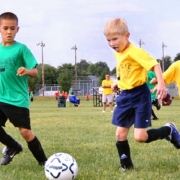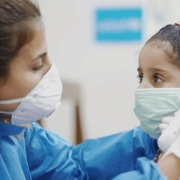Neighborhood disadvantage may pose an environmental risk to brain development in children
A new USC study suggests that certain neighborhoods — particularly those characterized by poverty and unemployment — may pose an environmental risk to the developing brains of children, impacting neurocognitive performance and even brain size.
The research appears in the journal JAMA Pediatrics.
These findings highlight the importance of neighborhood environments for child and adolescent brain development, the researchers said, and suggest that policies, programs and investments that help improve local neighborhood conditions and empower communities could support children’s neuro development and long-term health.
Neighborhood disadvantage, after accounting for family socioeconomic status and perceptions of neighborhood safety, showed associations with multiple aspects of neurocognition and smaller total cortical surface area, particularly in the frontal, parietal and temporal lobes.
Release date: 04 May 2021
Source: University of Southern California









